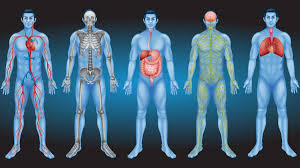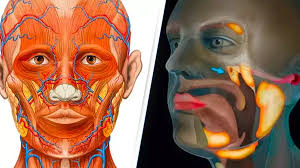
Scientists Just Discovered a New Organ – Inside YOU
It sounds like science fiction, but it’s real: scientists have identified a previously unknown organ inside the human body — and it could change everything we know about anatomy, disease, and how our bodies function.
Here’s what this surprising discovery means for your health, and why experts are calling it one of the biggest anatomical breakthroughs of the century.
🧬 Wait… We’re Still Finding New Organs?
You’d think after centuries of dissection and medical imaging, we’d have the human body completely mapped out. But the truth is, science is still catching up — especially with ultra-detailed technologies like advanced microscopy and 3D imaging now in play.
This new “organ” isn’t large or obvious, like the heart or liver. Instead, it’s part of the interstitium — a previously overlooked network of fluid-filled spaces that may serve as a shock absorber, immune messenger, and disease highway all in one.
📍 Meet the Interstitium: The Hidden Highway Beneath Your Skin
In 2018, researchers published a study describing what they believe to be a distinct, structured system of interconnected compartments beneath the skin and surrounding organs. This system appears to:
-
Protect tissues from damage caused by movement or pressure
-
Facilitate fluid drainage between tissues and the lymphatic system
-
Transport immune cells and even potentially cancer cells through the body
Although the interstitium had been noticed before, it was dismissed as “connective tissue” — until now.
🧪 Scientists used a special imaging technique (confocal laser endomicroscopy) that allowed them to view living tissue in a way previous microscopes couldn’t.
🧠 Why It Matters: More Than Just a Name
If the interstitium is officially recognized as an organ, it could open new frontiers in medicine. Here’s how:
🔬 1. Better Cancer Detection
Because the interstitium can act as a conduit, researchers believe it might be how cancer cells spread (metastasize) so efficiently. Understanding this pathway could improve early detection and targeted therapies.
💉 2. Improved Drug Delivery
If medications can be directed through the interstitial network, we might someday treat inflammation, pain, or even autoimmune disorders more efficiently.
🌊 3. New Insight Into Edema and Inflammation
Since the interstitium holds and moves fluid, studying it may help us better understand conditions like swelling (edema), fibrosis, and chronic inflammation.
🚨 Is This Really an “Organ”?
This is where the debate heats up. While some experts are calling the interstitium a newly discovered organ, others argue it’s simply a reclassification of existing tissue.
To qualify as an organ, a structure typically must:
-
Be anatomically distinct
-
Perform a specific function
-
Work in concert with other systems
Whether it meets those criteria is still under investigation — but either way, this discovery highlights how much we still have to learn about the human body.
🩺 What Does This Mean for You?
Right now, there’s nothing you need to do. But over the next decade, expect to see the interstitium:
-
Featured in medical textbooks
-
Become part of new diagnostic techniques
-
Spark new treatments for inflammatory diseases and metastatic cancers
⚠️ The discovery serves as a powerful reminder: the science of your body is still evolving.
Final Thought
The idea that scientists could uncover a new organ inside you might sound sensational — but it’s a real, unfolding story in modern medicine.
As researchers continue to decode the interstitium, they may unlock answers to some of the biggest questions in health and disease.
So next time you hear someone say, “We know everything about the human body,” just smile — because your body still holds secrets science is only beginning to understand.
